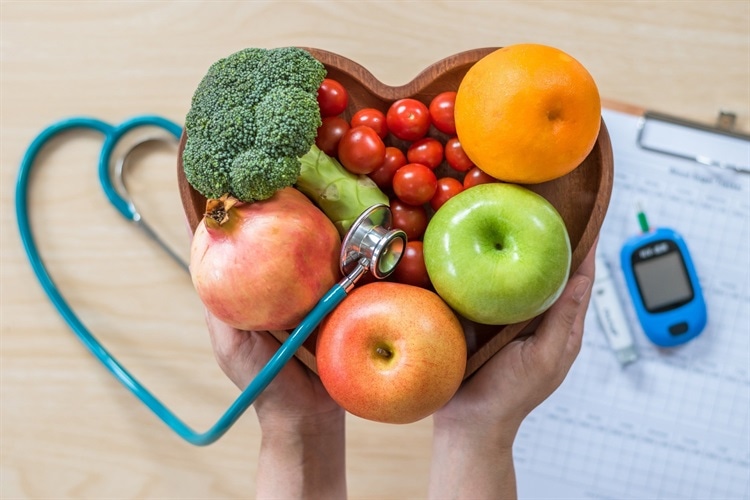Nutritional strategies for managing diabetes help people keep blood sugar in a healthy range and improve overall health. Following the right diet for diabetes means making smart food choices, controlling portion sizes, and balancing carbohydrates, protein, and healthy fats. Eating foods rich in fiber, lean protein, and healthy fats while limiting refined sugars helps maintain steady glucose levels. Combining nutrition with regular activity supports better insulin sensitivity. This guide explores how meal planning, glycemic index awareness, and balanced nutrition can help manage diabetes naturally. By following these strategies, you can enjoy variety in your meals while supporting long-term health.

Understanding the Role of Nutrition in Diabetes Management
Nutrition is the cornerstone of blood sugar management. What you eat directly influences glucose levels, energy, and weight control. A balanced diet with whole grains, non-starchy vegetables, and low-glycemic fruits helps prevent sudden spikes in sugar. Consistent meal timing supports steady glucose levels. Avoiding excess saturated fats lowers the risk of heart disease, which is a common concern in diabetes. Proper hydration also aids metabolic processes. Understanding how different foods affect your body allows you to make informed choices daily. With the right approach, nutritional strategies become a sustainable lifestyle rather than a restrictive diet.
Choosing the Right Carbohydrates
Not all carbs affect blood sugar the same way. Choose complex carbohydrates like oats, quinoa, and brown rice instead of refined ones. These release glucose slowly, reducing sudden sugar surges. Include fiber-rich foods like beans, lentils, and leafy greens to improve digestion and prolong satiety. Check the glycemic index (GI) to select options that keep glucose steady. Pairing carbs with healthy fats and lean protein further slows sugar absorption. Moderation is key—too much of even healthy carbs can impact glucose control.

Incorporating Lean Proteins
Lean protein supports muscle health and aids in blood sugar stability. Options include fish, skinless poultry, tofu, eggs, and low-fat dairy. Protein slows digestion, preventing rapid sugar spikes after meals. Including protein in every meal balances macronutrients and promotes fullness, helping with weight management. Combining protein with fiber improves glycemic control. Avoid processed meats, which can increase inflammation and cardiovascular risk. Opt for fresh, minimally processed protein sources for maximum health benefits in your diabetes-friendly diet.
Healthy Fats for Stable Blood Sugar
Healthy fats from avocados, nuts, seeds, and olive oil improve heart health and help manage blood sugar. They slow carbohydrate absorption, keeping energy levels steady. Omega-3 fats from salmon, chia seeds, and walnuts support anti-inflammatory processes, which is beneficial for people with diabetes. Limit trans fats and excess saturated fats from fried foods and processed snacks. Small amounts of healthy fats at each meal enhance flavor and nutrient absorption, making them an essential part of a balanced diabetes diet.
Meal Timing and Portion Control
Consistent meal timing prevents large fluctuations in blood glucose levels. Eating smaller, balanced meals every 3–4 hours maintains energy and reduces cravings. Portion control is vital—using smaller plates or measuring servings can prevent overeating. Avoid skipping meals, as it can cause unstable sugar levels. Include a balance of complex carbs, protein, and healthy fats in each meal. Planning snacks like a handful of nuts or a boiled egg helps prevent sugar dips and supports steady metabolic function.
Staying Hydrated and Limiting Sugary Drinks
Water is essential for glucose balance. Adequate hydration supports kidney function, helping flush out excess sugar. Replace sugary drinks with water, herbal tea, or infused water with lemon or cucumber. Even natural fruit juices can cause rapid glucose spikes, so consume them in small amounts and only with meals. Avoid sodas and energy drinks that contain high added sugars. Staying hydrated also helps reduce cravings mistaken for hunger, making it easier to follow your diabetes-friendly eating plan.
Practical Tips for Everyday Success
Plan your grocery list around whole, nutrient-dense foods. Prep meals ahead to avoid unhealthy last-minute choices. Learn to read nutrition labels for hidden sugars and sodium. Keep healthy snacks on hand to avoid processed options. Experiment with herbs and spices instead of salt to enhance flavor without raising blood pressure. Track your meals to understand how food impacts your glucose readings. Over time, these habits create a sustainable and enjoyable nutritional strategy for diabetes management.
